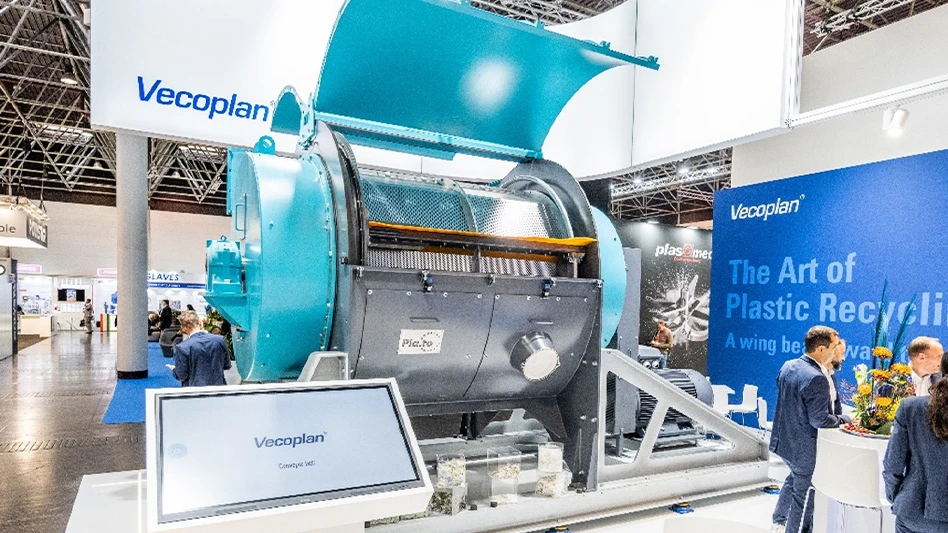The stainless steel giant Outokumpu, headquartered in Espoo, Finland, has announced plans for additional structural changes in its European operations as it seeks to improve its financial performance and efficiency, while bringing its supply and demand back into balance.
Outokumpu, which already cut production following its acquisition of Inoxum at the end of 2012, says that with continued challenges in the stainless steel industry the company will continue to reduce capacity.
Outokumpu says the stainless steel market has remained challenging throughout 2013, mainly driven by the continued economic weakness in Europe and the global overcapacity in the industry. Because of that, the company continues to see heavy losses in 2013, with a net debt of 3 billion euros at the end of June 2013.
Going further, industry overcapacity and imports from Asia continue to put pressure on prices and profitability and there are no signs of a material improvement in the market environment. For example, Outokumpu notes that in Europe, there are more than 1.5 million metric tons of overcapacity in cold rolled production. In addition, the planned sale of its Terni, Italy, mill, as required by the European Commission, resulted in lower synergy potential than originally planned.
To accelerate its return to profitability, Outokumpu has introduced a new industrial plan and efficiency measures for its European operations. Specifically, the planned changes include:
Outokumpu, which already cut production following its acquisition of Inoxum at the end of 2012, says that with continued challenges in the stainless steel industry the company will continue to reduce capacity.
Outokumpu says the stainless steel market has remained challenging throughout 2013, mainly driven by the continued economic weakness in Europe and the global overcapacity in the industry. Because of that, the company continues to see heavy losses in 2013, with a net debt of 3 billion euros at the end of June 2013.
Going further, industry overcapacity and imports from Asia continue to put pressure on prices and profitability and there are no signs of a material improvement in the market environment. For example, Outokumpu notes that in Europe, there are more than 1.5 million metric tons of overcapacity in cold rolled production. In addition, the planned sale of its Terni, Italy, mill, as required by the European Commission, resulted in lower synergy potential than originally planned.
To accelerate its return to profitability, Outokumpu has introduced a new industrial plan and efficiency measures for its European operations. Specifically, the planned changes include:
- Accelerating the closure of its melt shop facility in Bochum, Germany to achieve more efficient production structure and higher capacity utilization rates. The plant was originally scheduled to close in 2016, but will now close in 2014.
- Reducing its annealing and pickling capacity by 200,000 metric tons in Finland and cold rolling capacity by 300,000-350,000 metric tons in Germany to increase capacity utilization and lower costs.
- Optimizing its service center network by closing service centers in Barcelona and Langenhagen, Germany.
- Further cost savings through leaner overhead and organization in all sites, functions and activities across the European operations.
“Today’s announcement introduces a solid industrial plan to turn Outokumpu back to profitability,” says Mika Seitovirta, Outokumpu’s CEO. “In our European coil business we will have a two-pillar strategy: Tornio in Finland will be the cost leader in high-volume austenitic and ferritic standard grades with excellent cost structure and high quality, while our German operations will be the cold rolling center for premium tailored materials for the most demanding end-customer segments. We will reduce production capacity to increase utilization rates and discontinue the least profitable sales. Furthermore, we will optimize our service center network and streamline the organizational structure to drive down further costs.”
In Germany, Outokumpu will proceed with a number of other changes. In Benrath, the company will proceed with the NIFO (Nirosta Ferritic Optimization) investment program according to the original timeline. The program will mean that Benrath production will be transferred to Krefeld, Germany and the Benrath site will be closed by the end of 2015. To enable the production transfer and strengthen Krefeld’s role within the company, Outokumpu plans to invest 100 million euros to the Krefeld site.
After the planned closures, Outokumpu Nirosta will consist of two specialized high-quality production sites: Krefeld and Dillenburg, with a combined annual cold rolling capacity of 450,000–500,000 metric tons.
According to the plan, the majority of the current production in Bochum will be transferred to Tornio by the end of 2014. In addition, the company plans to close one annealing and pickling line with an annual capacity of 200,000 tons in Tornio to meet the current market demand.
In Sweden, Outokumpu says its Avesta plant plays an important role in its melting and special grades strategy and is a key site for specialty grades research and development. The earlier announced strategic review of the cold rolling operations in Kloster and Nyby is proceeding according to plan and the company expects to make decisions by the end of 2013.
Latest from Recycling Today
- Equipment from the former Alton Steel to be auctioned
- Novelis resumes operations in Greensboro, Georgia
- Interchange 360 to operate alternative collection program under Washington’s RRA
- Waste Pro files brief supporting pause of FMCSA CDL eligibility rule
- Kuraray America receives APR design recognition for EVOH barrier resin
- Tire Industry Project publishes end-of-life tire management guide
- Des Moines project utilizes recycled wind turbine blades
- Charter Next Generation joins US Flexible Film Initiative





